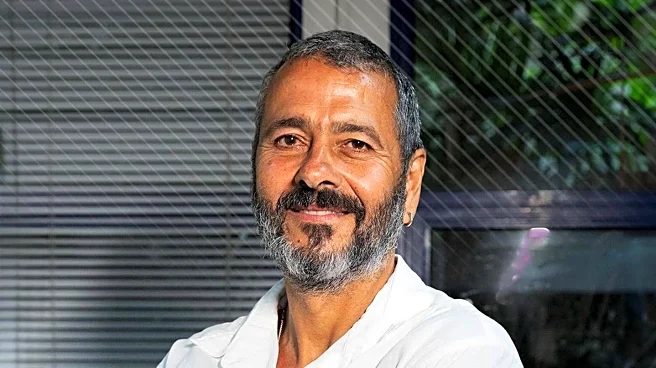What's Happening?
The U.S. Food and Drug Administration has approved Papzimeos (zopapogene imadenovec-drba), a groundbreaking immunotherapy for adult patients suffering from recurrent respiratory papillomatosis (RRP). RRP is a chronic condition caused by human papillomavirus (HPV) types 6 or 11, leading to benign tumor growths in the respiratory tract, particularly the larynx. This disease results in significant morbidity, including voice changes and breathing difficulties, and has traditionally required repeated surgical interventions due to the lack of approved medical therapies. Papzimeos, administered via subcutaneous injection, stimulates an immune response against HPV-infected cells, offering a novel treatment mechanism. The approval follows a single-arm, open-label trial where 51.4% of patients achieved a complete response, eliminating the need for surgery within 12 months post-treatment.
Why It's Important?
The approval of Papzimeos marks a significant advancement in the treatment of RRP, a rare disease with approximately 1,000 new cases annually in the U.S. This development is crucial as it provides a non-surgical treatment option, potentially reducing the frequency of invasive procedures for patients. The therapy's ability to induce HPV-specific T cells and maintain durable responses over two years highlights its potential to transform the treatment landscape for RRP. The FDA's decision underscores the importance of innovative therapies in addressing unmet medical needs, particularly for rare diseases, and may encourage further research and development in similar fields.
What's Next?
Following the FDA's approval, Papzimeos is expected to be integrated into clinical practice, offering new hope for patients with RRP. Precigen, Inc., the company behind Papzimeos, will likely focus on scaling production and distribution to meet demand. Healthcare providers may begin to adopt this therapy, potentially reducing the reliance on surgical interventions. The approval may also prompt further studies to explore the long-term efficacy and safety of Papzimeos, as well as its application in other HPV-related conditions. Stakeholders, including medical professionals and patient advocacy groups, will be closely monitoring the therapy's impact on patient outcomes.









